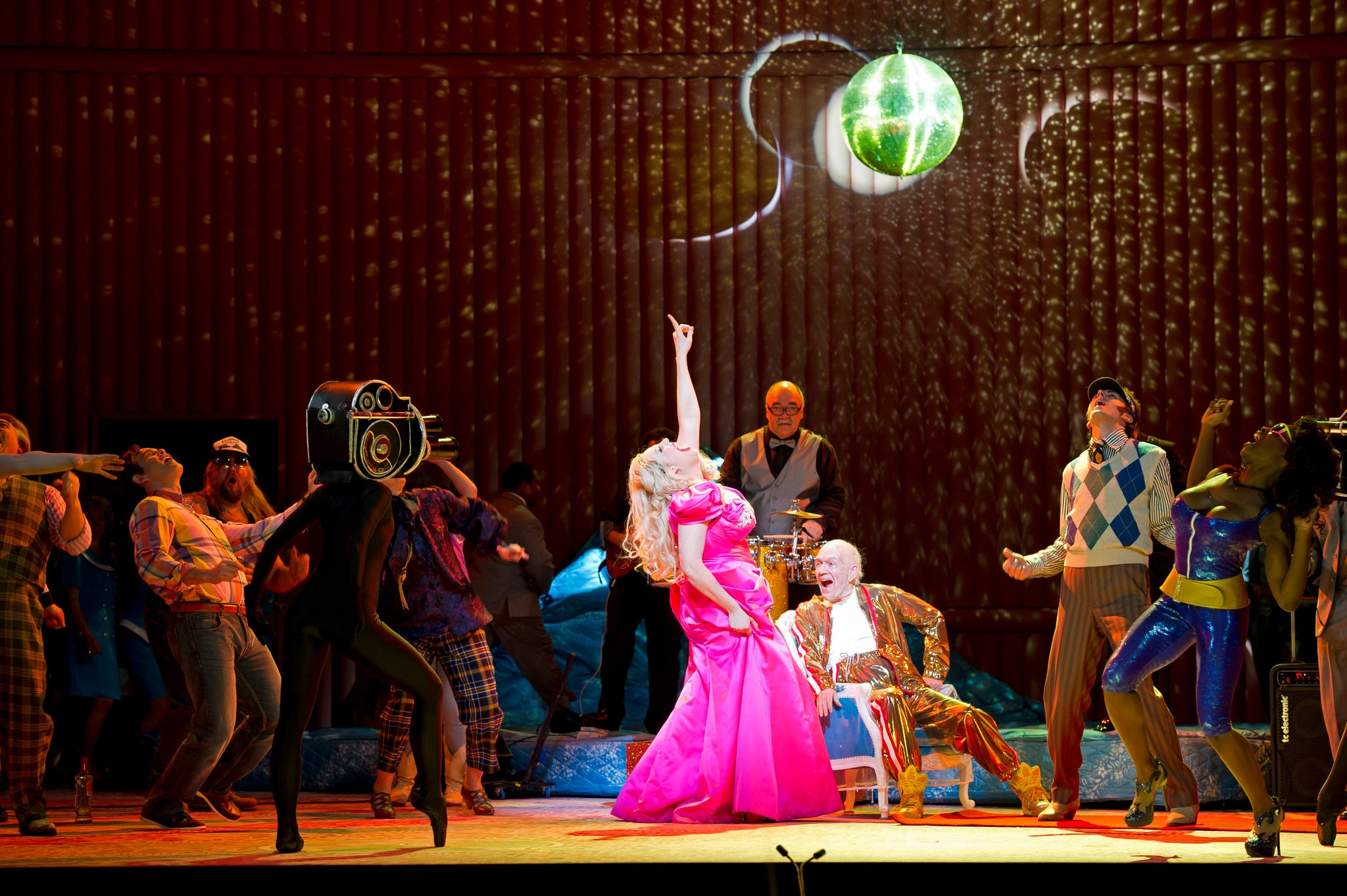Composer of tragicomic tale of Anna Nicole Smith opera: How pop culture inspired me
As Mark-Anthony Turnage’s tragicomic tale of the late Anna Nicole Smith returns to Covent Garden, the composer reveals how pop culture, from celebrity gossip to Beyoncé, inspires his work

Your support helps us to tell the story
From reproductive rights to climate change to Big Tech, The Independent is on the ground when the story is developing. Whether it's investigating the financials of Elon Musk's pro-Trump PAC or producing our latest documentary, 'The A Word', which shines a light on the American women fighting for reproductive rights, we know how important it is to parse out the facts from the messaging.
At such a critical moment in US history, we need reporters on the ground. Your donation allows us to keep sending journalists to speak to both sides of the story.
The Independent is trusted by Americans across the entire political spectrum. And unlike many other quality news outlets, we choose not to lock Americans out of our reporting and analysis with paywalls. We believe quality journalism should be available to everyone, paid for by those who can afford it.
Your support makes all the difference.The premiere of Anna Nicole by Mark-Anthony Turnage, in 2011, was unlike any other the Royal Opera House has experienced.
The foyer was plastered with images of the soprano Eva-Maria Westbroek as Anna Nicole Smith, complete with supersized fake breasts; and on the stage’s red velvet curtains the initials for the Queen, “ER II”, were replaced with “ANR”. This startling transformation of empty celebrity into high art is back to open the Royal Opera House’s new season on 11 September, with a special performance for an audience of students.
Turnage himself is all for this. “It’s fantastic,” he says. “I feel it’s part of a genuine effort by Covent Garden to get a wider audience in – they really want to make a difference.” Still, he has no idea how the work will go over with this youthful crowd: “I hope they’ll see it as a comic piece with a tragic end. But it’s quite likely that none of them, mostly aged between 18 and 26, will have heard of Anna Nicole Smith,” he remarks.
The eponymous heroine, to remind you, built a career as model and TV presenter after having her breasts surgically enhanced to vast proportions. She married an octogenarian billionaire, but was excluded from his will, lost her son to drugs and died of an overdose aged 39 in 2007. The court cases around her have rumbled on into recent weeks.
Still, it is the archetypal “fallen woman” resonances of her tale that well suit the genre of opera. “I think you can get too obsessed with the idea that it’s a story that relates to today,” says Turnage. “We were after a story that’s universal. Relevance – so what? If it dates, it dates. This time I won’t read the reviews.” Anna Nicole was a hit with some for Turnage’s gritty, jazzy, sometimes heartbreakingly beautiful score and its snarky libretto by Richard Thomas (of Jerry Springer: The Opera). Others, considering the subject too trashy for an opera house, couldn’t abide it.
“I found it very hard to write,” he says. The difficulty was the comedy: “It’s so hard to make people laugh!” He says he relied strongly on Thomas’s skill and experience with that side of it, adding, “All the miserable, angsty, lyrical stuff – that’s much easier for me.”
Controversy still surrounds the work: several opera houses in the US have demurred from staging it because of its bad language. But at 54 Turnage is no stranger to controversy. He shot to fame in his late twenties when his first opera, Greek, established him as the “bad boy” of British new music. While Modernism and serialism were still excessively dominant forces, he drew vital influences from popular idioms, which was considered highly rebellious.
More fuss emerged in 2010 when his orchestral work for the Proms, Hammered Out, proved to have rather a lot in common with Beyoncé’s “Single Ladies”. The imitation was a sincere form of flattery, plus a musical gift for his son, who liked the song; but eventually, Turnage says:, “I paid 50 per cent to Beyoncé. I’d handled it really badly,” he reflects. “I should have come clean about it from the start.” His biggest regret, though, seems to be that he did not get to meet the R&B star.
He has a strong following among both public and musicians, constantly garnering an impressive string of international commissions. The premiere takes place in Flanders, in October, of Passchendaele; further highlights include another opera for Covent Garden, planned for 2020.
“People say I’m prolific,” Turnage remarks. “Well, I’ve got a lot of kids, so I’ve got to write a lot of music. I love composing, but I’m not writing to be indulgent, I’m writing to provide for my family.” He has four children aged between 18 and three, from two ex-marriages. Composers, he acknowledges, can be difficult to live with: “You can become so focused on work that you can be a pain in the arse. I think I’ve learned how to switch off.” Today he lives alone in a compact north London flat.
“People do find composing hard and they do struggle,” he says. “But that struggle, the pain of it, is also very attractive to me, very engaging. If we’re not totally bound up in this strange world we’re in in composition, then something’s wrong. It’s got to be obsessive.”
‘Anna Nicole’, Royal Opera House, London WC2 (020 7304 4000) 11 to 24 September
Join our commenting forum
Join thought-provoking conversations, follow other Independent readers and see their replies
Comments